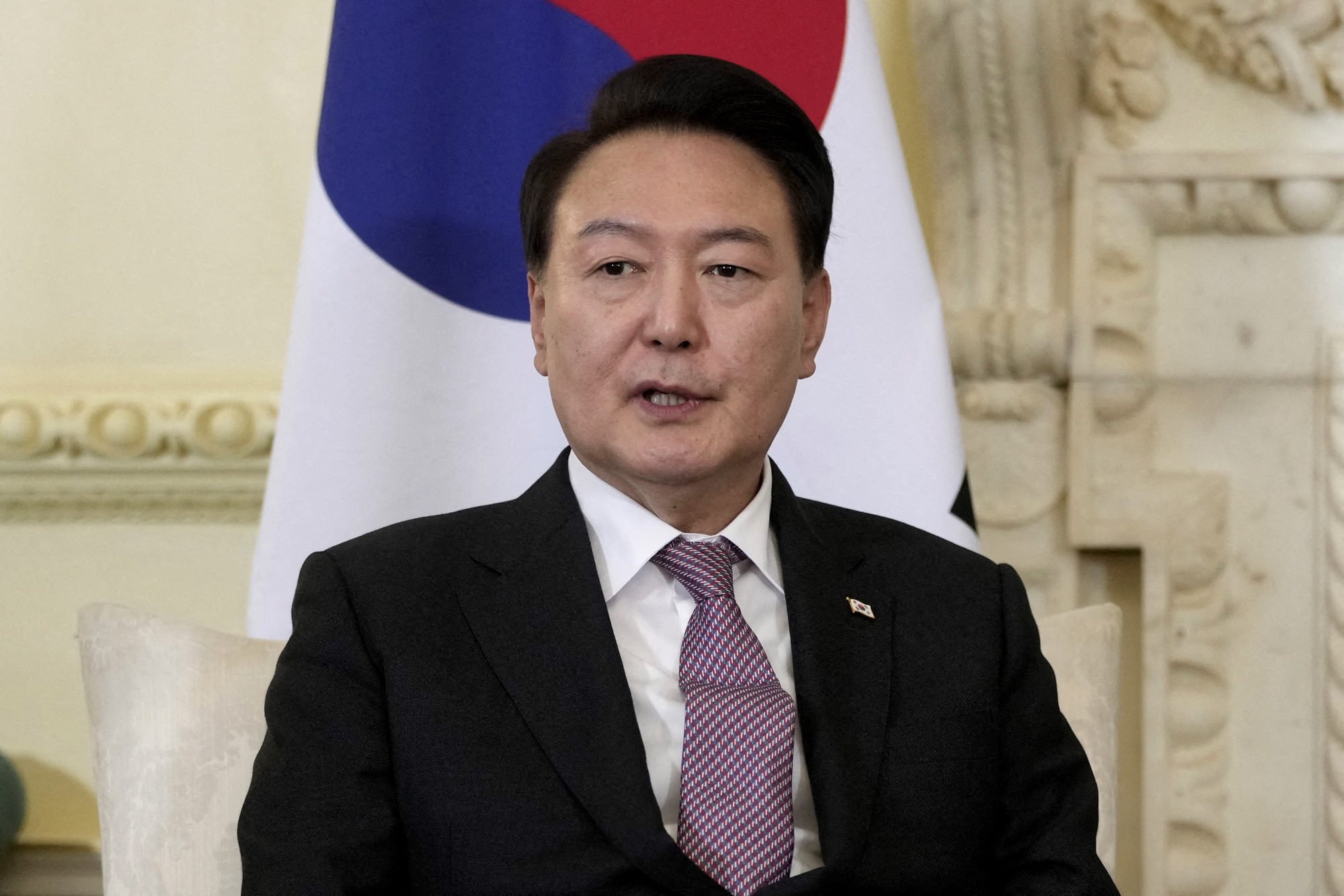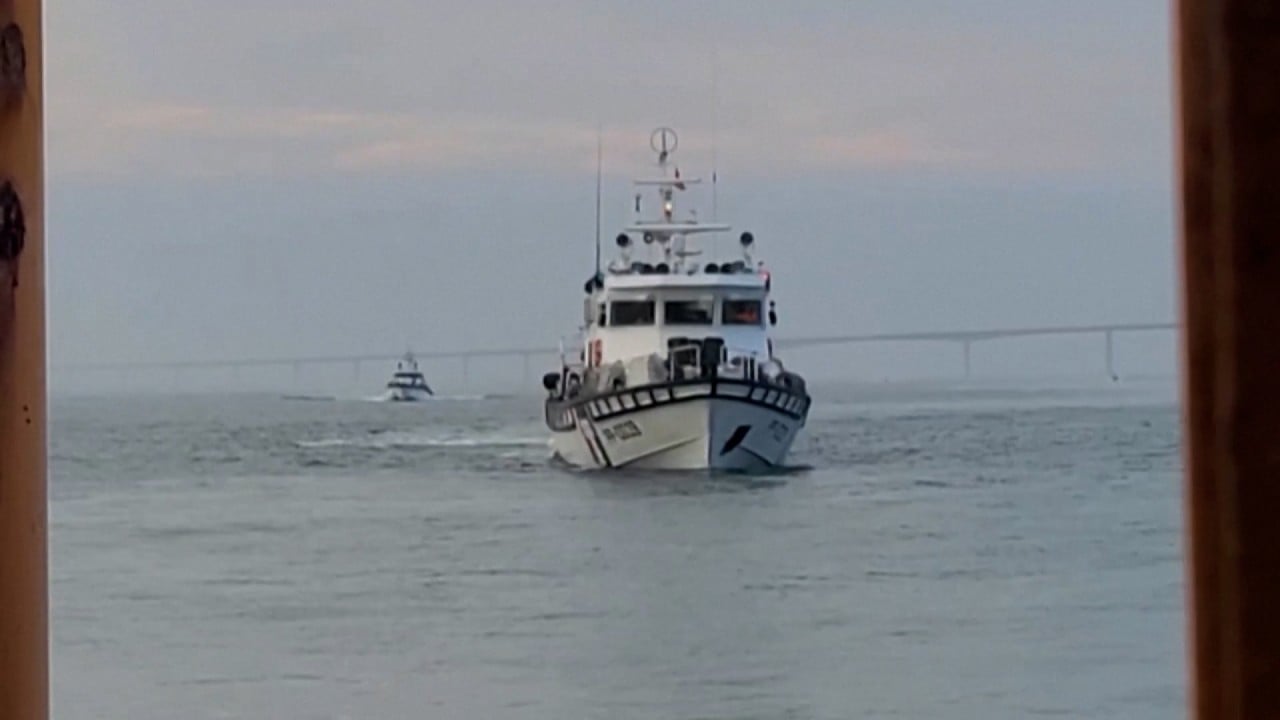
South Korea ‘sensing geopolitical uncertainty’ avoids committing in potential Taiwan crisis, maintains mainland China ties
- With wars raging in Ukraine, the Middle East, and an emboldened North Korea, it is prudent Seoul not get involved in a potential Taiwan crisis, one expert said
- The analyst added, a war in the Taiwan Strait could lead to a full-blown conflict, due to growing North Korea-Russia ties, and a North Korean-Chinese leaders’ meeting
South Korea’s Minister of National Defence Shin Won-sik downplayed his country’s resolve to intervene in such a scenario, during a TV interview on April 21, adding that if a crisis occurred, Seoul’s paramount concern was “observing the possibility of North Korean provocations”.
Will South Korea’s Yoon ignore calls to say ‘xie xie’ and forget Taiwan?
“South Korea is sensing geopolitical uncertainty,” he said, noting that Seoul was “toning down the rhetoric” on Taiwan so as not to inject uncertainty that could “easily turn into volatility”.
Before Blinken’s three-day visit to China, US officials pointed to a period of relative calm in the Taiwan Strait over the past few months, after years of aggressive Chinese military manoeuvres and threats.
Just hours after Blinken departed on Saturday, Taiwan reported a sudden surge of military activity, with a dozen Chinese warplanes flying sorties close to the island.

“Preparing against a possible attack from North Korea is helping the US in Taiwan indirectly,” Park said, noting that Washington could then utilise its forces without worrying about North Korean provocation.
“Sending troops to Taiwan is not the only way we can support the US in Taiwan. Preventing North Korea from attacking South Korea is an indirect and important way to support the US in Taiwan,” Park said.
If South Korean troops were sent to Taiwan, Park predicted that Seoul would have little wiggle room.
“South Korea would not have space to consider China’s strategic position … [Seoul] would have no choice but to side with the US,” Park said.
Alexander M. Hynd, a postdoctoral research fellow at the University of New South Wales in Australia, said that under the US-South Korea alliance, Seoul was keen to maximise its diplomatic independence from America while holding onto Washington’s security guarantee.
“It is not in South Korea’s interests to commit itself prematurely to joining a US military action,” said Hynd, who specialises in Asia-Pacific’s international relations and politics.
Asia plays with fire as nuclear war safety net frays, arms races accelerate
“If the US were later seen to put pressure on South Korea to change its stance on this issue, then South Korea could not only use this as bargaining leverage with Washington, but also minimise the diplomatic fallout in Beijing,” Hynd said.
Chinese state tabloid the Global Times in August called on South Korea to “remain rational and clear-headed” not only for its own sake but also for the interests of the Korean peninsula and Northeast Asia.
Calling on Seoul to oppose all forms of the “new Cold War” ahead of the Camp David Summit between the US, Japan and South Korea held in August, the editorial accused Washington and Tokyo of having “hidden motives” and “manipulating events in the shadows”.
Full-fledged war in Taiwan
“North Korea is likely to be more emboldened” by attacking South Korea to divert US attention, Lee added.
Pyongyang had shipped about 7,000 containers filled with munitions and other military equipment to Russia since last year to help support Moscow’s war in Ukraine, defence minister Shin said in March.
Filipino envoy says South China Sea is the ‘real flashpoint’ in Asia, not Taiwan
In return, Russia had provided North Korea with food, raw materials and parts used to make weapons, as well as assisting in Pyongyang’s illegal satellite launches.
“South Korea will be facing not just nuclear-armed North Korea, but also Russia and China that are backing North Korea,” Lee said, noting that in a Taiwan war, South Korea would be at the forefront of the “northern theatre” facing North Korea and Russia, while the US and Japan would be facing the “southern theatre” near the Taiwan Strait.
“It will be a difficult war for every party involved, and the best hope is to prevent it from happening,” Lee warned.


